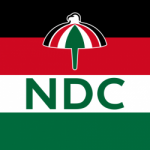Land acquisition and registration in Ghana have long been fraught with challenges, including indiscipline, limited access, multiple sales, and frequent litigation.

Many investors and land buyers have raised concerns over inadequate security of tenure and conflicts between and within traditional authorities, families, and clans. These issues are well-documented in the National Land Policy.
In the foreword to the 1999 National Land Policy, Dr. Christina Amoako-Nuama, the then Minister for Lands and Natural Resources, highlighted the policy’s goal of addressing these fundamental challenges.
However, 25 years later, issues like environmental degradation, deforestation, and climate change continue to hinder progress.
As part of his “Building-the-Ghana-We-Want-Together” policy, former President John Mahama plans to review and update the 25-year-old National Land Policy to make it more responsive to modern needs.
The revised policy will aim to promote efficient land distribution and affordable access for housing and development in line with the Land Act 2020 and the Land Use and Spatial Planning Act 2016.
Mahama also proposes improving customary land administration to reduce conflicts and litigation, which have overwhelmed the court system and stalled both private and public development.
By supporting customary land authorities and incentivizing them to map and register land borders, the government aims to modernize land management and boost investment.
Additionally, Mahama plans to establish a Presidential Commission to resolve land disputes, return acquired lands to original owners, and ensure compensation to affected stools, families, and clans.
He also intends to improve the efficiency of state agencies such as the Lands Commission and the Office of the Administrator of Stool Lands by introducing service delivery timelines, with a 30-day target for land title registration and a 20-day target for mortgage registrations.
Further, the current public land allocation system will be reviewed to promote transparency, eliminate abuses of power, and safeguard the rights of women, youth, and vulnerable groups.
These initiatives are part of Mahama’s vision for a Ghana where land serves as a tool for social transformation and economic growth, ensuring that the vulnerable are protected and empowered.
























































![[FREE FREE MONEY] Predict and Win a Guaranteed GH¢200 From Us EVERY WEEK](https://wordpress.ghanatalksradio.com/wp-content/uploads/2022/02/Predict-and-Win-Final-09-03-2021-218x150.jpg)
![[Predict & Win – 8th/Oct.] WIN A Guaranteed ¢200 From Us This Week](https://wordpress.ghanatalksradio.com/wp-content/uploads/2021/10/maxresdefault-16-218x150.jpg)
![[Predict & Win – 2nd] WIN A Guaranteed ¢200 From Us This Week](https://wordpress.ghanatalksradio.com/wp-content/uploads/2021/09/maxresdefault-50-218x150.jpg)
![[Predict & Win – 25th] WIN A Guaranteed ¢200 From Us This Week](https://wordpress.ghanatalksradio.com/wp-content/uploads/2021/09/maxresdefault-36-218x150.jpg)
![[Predict & Win – 18th] WIN A Guaranteed ¢200 From Us This Week](https://wordpress.ghanatalksradio.com/wp-content/uploads/2021/09/maxresdefault-23-218x150.jpg)








![[National cathedral] See full list of churches that have contributed since 2018](https://wordpress.ghanatalksradio.com/wp-content/uploads/2020/09/Ghana-National-Cathedral-GhanaTalksRadio-100x70.jpg)



